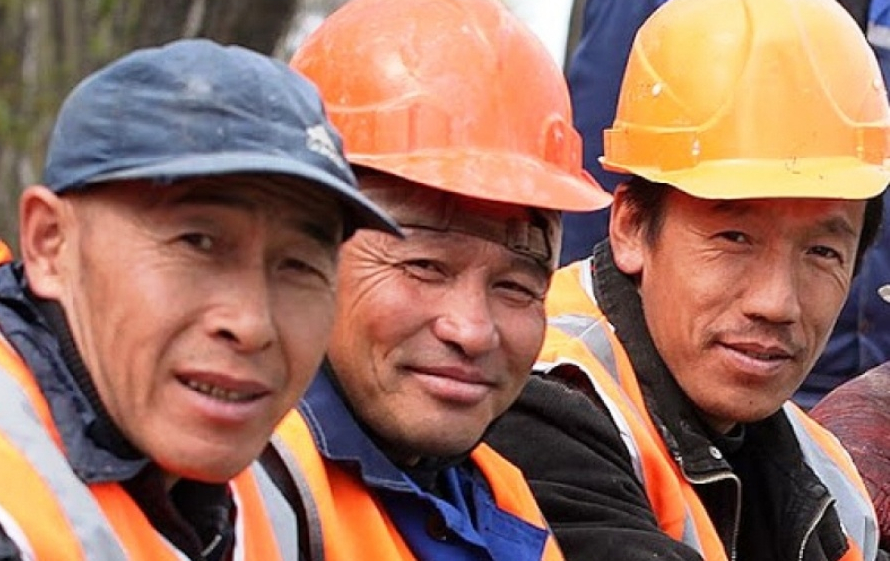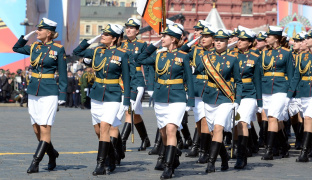
Authorities and experts agree that the recovery of the economy depends on the availability of financial and labor resources in Ukraine. Based on the analysis, there is no particular concern about one of these factors. However, with the other, there are nothing but continuous question marks. Answers will only be obtained after the end of the war.
Financial capital
At last year's July conference in Lugano, Ukraine presented a post-war economic recovery plan. It includes 850 projects with a total cost of over $750 billion.
It is clear that these projects cannot be financed with domestic resources alone (even considering anticipated compensation from russia). External and very substantial investments are needed. The Cabinet of Ministers and the presidential office estimate the need for them at $250 billion.
Moreover, they emphasize that businesses do not need to wait for the definitive cessation of hostilities. However, investors will never believe president Zelensky or the Commander-in-Chief of the Armed Forces Zaluzhny if they speak about the security of such investments.
That's not how it works. Solid guarantees are needed. These guarantees come in the form of insurance for investment projects against military risks. Earlier, Minister of Economy Yuliia Svyrydenko reported on the first pilot projects in this area.
As an example, she mentioned the construction of the M10 industrial park in Lviv with an area of 140,000 m2, including 6 plots for production and warehouse premises, and providing for the creation of over 3,000 new jobs. The authorities plan to expand such insurance to all significant investment projects.
This is the work of the European Bank for Reconstruction and Development (EBRD). According to the Ministry of Economy, the EBRD is currently creating a special fund for the development of the international reinsurance and property and trade risk insurance market, including insurance for goods in transit or in warehouses.
Individual countries interested in expanding economic cooperation are acting independently. For example, the Polish Export Credit Insurance Corporation KUKE has decided to insure investors participating in Ukraine's reconstruction projects.
KUKE was the sole insurance organization in the EU that provided guarantees for the sale of goods to Ukraine for over a year. As a result, in 2022, Polish exports to Ukraine increased by almost 55%, according to Ukrainian Ministry of Economy data.
The second key factor for attracting financial capital to the country (favorable investment climate in the legislative field is put aside because it was already created during Zelensky's term) is the presence of working cases.
This refers to the fact that businessmen are guided by "herd instinct" in their decisions. They ask themselves, "Has anyone dared to invest there before us?" They orient themselves to so-called institutional investors, among which is the EBRD.
There bare such cases. Matteo Patrone, the Managing Director of the EBRD for Eastern Europe and the Caucasus, announced at the end of October that after the start of the large-scale war, the EBRD invested over €3 billion in Ukrainian state-owned enterprises.
Such examples encourage private businesses to invest. For instance, Zdeněk Zajíček, the head of the Czech Chamber of Commerce, reported on November 2 that local companies have started receiving the first orders related to the restoration of Ukraine.
According to him, these are contracts for the supply of medical equipment and agricultural machinery. Czech companies are also ready to update energy, transport, and water infrastructure, supply building materials, and directly carry out construction work. Nearly 200 Czech companies have submitted corresponding business proposals to the Chamber of Commerce, Zajíček specified.
Expectations for larger investments in the economy seem well-founded. However, even with insurance and examples, investment "sharks" are not convinced that money can be invested right now.
The results of September negotiations between Zelensky and the owners of companies, including Michael Bloomberg of Bloomberg LP, Robert Kraft of Kraft Group, and Kenneth Griffin of Citadel LLC, testify to this.
Also present were the presidents of investment funds Pershing Square Capital – William Ackman, Starwood Capital – Barry Sternlicht, vice president of BlackRock – Philipp Hildebrand, and the president of Blackstone investment company, Jonathan Gray.
"American entrepreneurs and financiers confirmed their readiness to make significant investments in our country immediately after the end of the war and the assurance of security", - later commented president Zelensky on the meeting's outcomes.
Workforce capital
Undoubtedly, money (its presence) is an important issue, but not the only one. Equally important is who will be utilizing it. According to the Ministry of Economy's estimates, the reconstruction of Ukraine will require an additional 4.5 million people.
This workforce is already in short supply. The deficit of professionals in engineering and technical specialists on construction sites in Ukraine has reached 50%, according to a survey of construction company executives conducted by Interfax-Ukraine in November.
In this context, relying on external resources, such as mass recruitment of labor migrants from poor African and Asian countries, is not a viable scenario. Society is not prepared for such a scenario, and the authorities probably lack enthusiasm, considering the problems these migrants have caused in developed EU countries. The only solution remains: bring back our own.
Yuliia Svyrydenko confirmed in a November interview with the media that the government plans to address this issue by encouraging Ukrainians who have left to return. "If we manage to do this, we can significantly accelerate the pace of recovery", - emphasized the head of the Ministry of Economy.
She outlined three essential conditions: security, housing, and employment. The first aspect involves not only the complete cessation of hostilities.
According to the minister, the Cabinet of Ministers is working on humanitarian demining projects. The goal is to return 80% of potentially contaminated territories to use within 10 years.
Perhaps this is a realistic task—the kind that authorities can not only promise but also accomplish. However, it must be acknowledged that 10 years is too long. Over such a period, Ukrainian refugees may fully establish themselves in new countries. Even now, the willingness of some to return is questionable.
While social research provides encouraging statistics—in a report published in March by the UN Refugee Agency, 77% of surveyed Ukrainians responded they are willing to return—Ella Libanova, the director of the Institute of Demography and Social Studies, is skeptical.
"In my opinion, this figure is somewhat exaggerated. Many of those who have left are not ready to admit to themselves that they will stay there", - she explained in an interview with the media.
The expert referred to the statistics of refugee returns after the First and Second World Wars, which stood at 30-40% of those who left the country. "I think in Ukraine it will be more, but not 77%", - she speculated.
So, to encourage as many returns as possible, there need to be "carrots". Among the top incentives is the opportunity to find employment and housing, and there's no disputing that. The government clearly understands this, as indicated by Svyrydenko's November interview.
She reminded about the state program eRobota, which provides free vouchers for training in new professions, and about non-repayable grants for starting and developing businesses. She also mentioned the preferential housing loan program eOselia.
However, the data from the Ministry of Economy shows that these projects are still in the pilot stage. For example, as of October 30 this year, only 4,635 families were able to take advantage of loans at 3-7% per annum in hryvnia to purchase an apartment or house.
As OstroV noted, since July of this year, all Ukrainians who have lost their homes due to the war can use eOselia. Previously, the program was only available to law enforcement officers, military personnel, educators, healthcare professionals, and scientists.
The figure provided by the ministry suggests that even among law enforcement officers (a privileged category), only a few received effectively interest-free housing loans under eOselia. What can be said then about accessibility for hundreds of thousands of "ordinary" citizens who have lost their home due to the war?
Thus, the managing partner of INSPI Development, Volodymyr Sementsov, was not wrong in his summer forecast that eOselia (more precisely, its expansion to all those who lost their homes) would not lead to a housing construction boom in Ukraine.
Similarly, with eRobota. As of October 30, 15,500 people were able to use vouchers for retraining in 124 specialties. Grants totaling 188 million hryvnia were received by 8,282 people. If we compare the demand and the volume of government assistance provided, it's roughly similar to the situation with eOselia.
So, on one hand, there seem to be the right incentives for the return of refugees. But in reality, obtaining them is quite problematic. Almost unrealistic for the majority. And this is not all.
It's not enough just to provide returned individuals with housing and employment. It must be a decently paid job. Earlier, commenting on the problem, Volodymyr Zelensky noted that it is very difficult to get those who have left to come back if, for example, in Poland, they earn much more than in Ukraine.
According to the president, the solution lies in reducing taxes, both for citizens and businesses. However, he himself acknowledged that there is currently no possibility to do this.
"I am a supporter of reducing taxes. But now, during such a war and the obvious dependence of Ukraine on cooperation with financial donors, we cannot afford to reduce taxes. But when Ukraine becomes a donor for the world after the victory, our level of possibilities will be higher", - said the president in a June address to the Verkhovna Rada.
From this, it follows that, no matter how much everyone in Ukraine wants to kickstart the economic recovery here and now, it can realistically only begin after the complete end of the war, with the presence of financial and labor capital.
Future investments, it seems, may not be a cause for concern. The concern should be for those who have left. If, for some reason, the majority does not return, we will face a final shortage of approximately 2.5 million labor resources for the economy.
This is according to government data on the additional need for 4.5 million workers, considering that the number of officially departed exceeds 6 million people. Plus, statistics mentioned by the director of the Institute of Demography and Social Studies, indicate that only 30-40% of refugees typically return after the war.
By Vitaliy Krymov, OstroV




